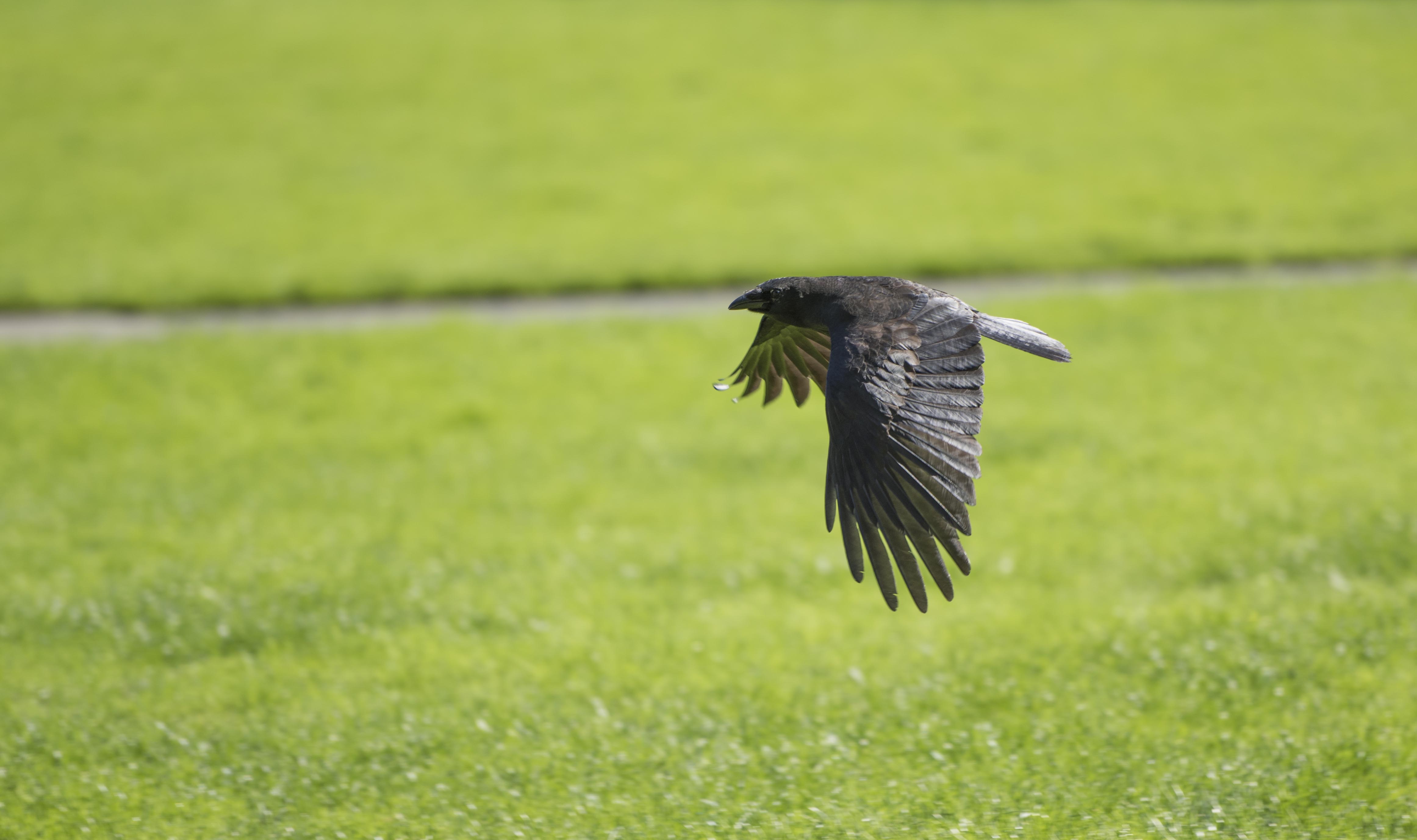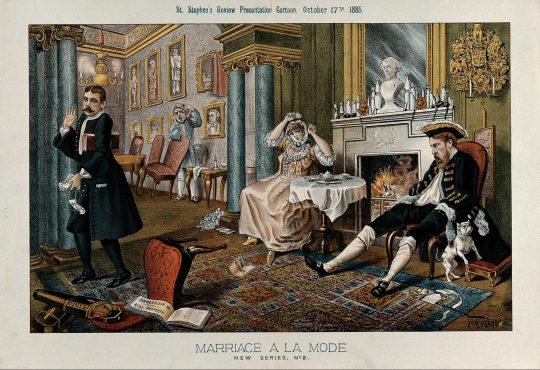
The crow population on campus can accurately be described as pervasive. There appear to be so many, it’s surprising that not one of them is enrolled in University—yet.
Students see flocks of them ferreting about near the Rotunda and dining halls, scouring for scraps, pecking at bits of debris from lunch trays—or perhaps their attempts for integrating themselves socially (if so, they’re barely even convivial).
The accounts of student-crow interaction are anything but positive.
“The other day, some kids were messing with these crows out on the lawn. I later saw the same group of people getting attacked by a swarm of crows during lunch. It was hilarious,” sophomore Rachael Garrison said.
Whatever their intentions, crows have the flagrant reputation for being nothing other than a flock of pests. How or why has this become common knowledge?
BirdBusters, a company designed to effectively combat pest disturbances, published previous customer complaints about crow habitation on their website.
This is of course preceded by a motto written at the top of the homepage, reading, “We don’t hurt them … just make them leave…it’s Bye, Bye Birdie … guaranteed!”
While the slogan may be an unsuccessful attempt to rhyme, their bird-deterrent products have a better success at influencing the average consumer.
“When crows are in their flocking phase, thousands of these very noisy pest birds can literally overwhelm trees or buildings in an area, creating a tremendous amount of noise and harassing both people and animals in the area,” BirdBusters’ website said.
Birds are, for the most part, noisy creatures; it isn’t surprising that a swarm of them may easily prove to be distracting.
“I don’t ever really hear them. Are crows loud?” It’s possible the noise itself isn’t what’s truly bothering people—it’s some other pestering nature that would in fact label them as a ‘pest.’
“I’m not going to do that,” senior Grete Slaugh said when asked to reproduce the noise of a crow. Which is fair enough (it really is quite an annoying sound).
Some of the best-selling products offered on the BirdBusters website include stainless steel bird spikes, shock strips, bird capture nets and bird traps.
The cruelties of the “de-birding” tactics aren’t exactly strategic; if security adopted these procedures we might as well label them huntsmen.
“We’ve never resulted to anything like that. In fact, the only complaint we’ve ever gotten is when they dive-bomb people. And that was four years ago,” campus security officer Lisa Mitchel said.
Our bird infestation isn’t as much of a concern as it is in other universities, yet that isn’t necessarily sensible.
BirdBusters also claim that crows are culpable for being an environmental and health risk, due to the fact that bacteria and ectoparasites found in crow feces may contaminate a surrounding area.
Crows are not only (theoretically) loud creatures; they’re also noxious to a residential area, which absolves campus-dining services if students began to suffer form outbreaks of dysentery.
The upsurge in crow population now looms as threatening as opposed to what was once a mild annoyance.
BirdBusters, however, fails to mention how surprising ly cunning crows are. A report given by the Daily Mail alleges that crows have intelligence equivalent to that of a seven year old.
A study conducted by the University of Auckland, with Sarah Jelbert as lead researcher, found that the birds’ understanding of the effects of volume displacement matched that of human children aged between five and seven.
Crows also have a frightening retentive memory; perhaps a surprising trait, but a true aspect of their nature nonetheless.
“[Crows can] learn to recognize human faces, and hold onto that memory [and sometimes a grudge] for a long time,” reported researchers from the Arts Technology magazine from the University of Washington.
What’s more, the research has revealed that a crow’s sharp perceptive abilities can distinguish between what they consider to be good and bad people, forming opinions that can last for years.
I’m sure they would be fantastic volunteers to help identify a police-lineup, if they were not busy harassing the students of the University of Puget Sound.
“I was finding that they had hyper-adapted. They’d become extremely adept at living with us. And in return, we just tried to kill them all the time. And in doing so, we were breeding them for parasitism. We were giving them all sorts of reasons to adapt new ways,” speaker Joshua Klein said in a May 10 TED Talk video, stating that an increase in population is only inevitable.
Crows are the new cockroach; they’re practically immortal as a species.
They’re also, ostensibly, better at judging other people.
Nevertheless, it’s possible crows will come to be beneficial for humans. Josh believes we can easily create a symbiotic relationship between this astonishingly adaptive species and ourselves.
To test this theory, he invented a “crow vending machine,” a device that gives birds peanuts for inserting a coin.
When tested, the machine dispensed peanuts and coins in a series of steps designed to teach the crows to drop coins into a slot in exchange for a peanut.
The last step consisted of depriving them of the coins that allowed them access to their food.
Interestingly, the crows were able to find money spread out along the ground, insert them into the slot, and receive their reward.
From this experiment, it’s come to fruition that crows, while apparently feasible to train, are also capable of theft.
They are able to snatch up money from the ground and take their spoils back to their nests.
Crows are able to adapt so quickly, they have the capacity to turn to felony at a moment’s notice (in this economy, who can blame them?).
“That’s kind of interesting,” Slaugh said upon learning about the experiment, a fairly apt reaction.
Though asking students to “take crows seriously” is an unusual plea, it would be a wise investment to those who are concerned for safety of their health and their wallet.
The fact that crows are able to recognize facial features should be enough to deter students from harassing them, because it’s likely they will remember your lapse in judgment for the rest of your stay here. And no one wants a vengeful crow out to get them on the peaceful way to an 8 a.m. class.
“Don’t hate the crows,” Klein says. “Just let them save you.” Or plague you with disease-ridden feces, either way.
Crows have made a statement; their message is mostly, if not completely, clear: You’re either with us or against us. It would behoove students to be cautious around gangs of crows; otherwise they may very well pickpocket your lunch money.






